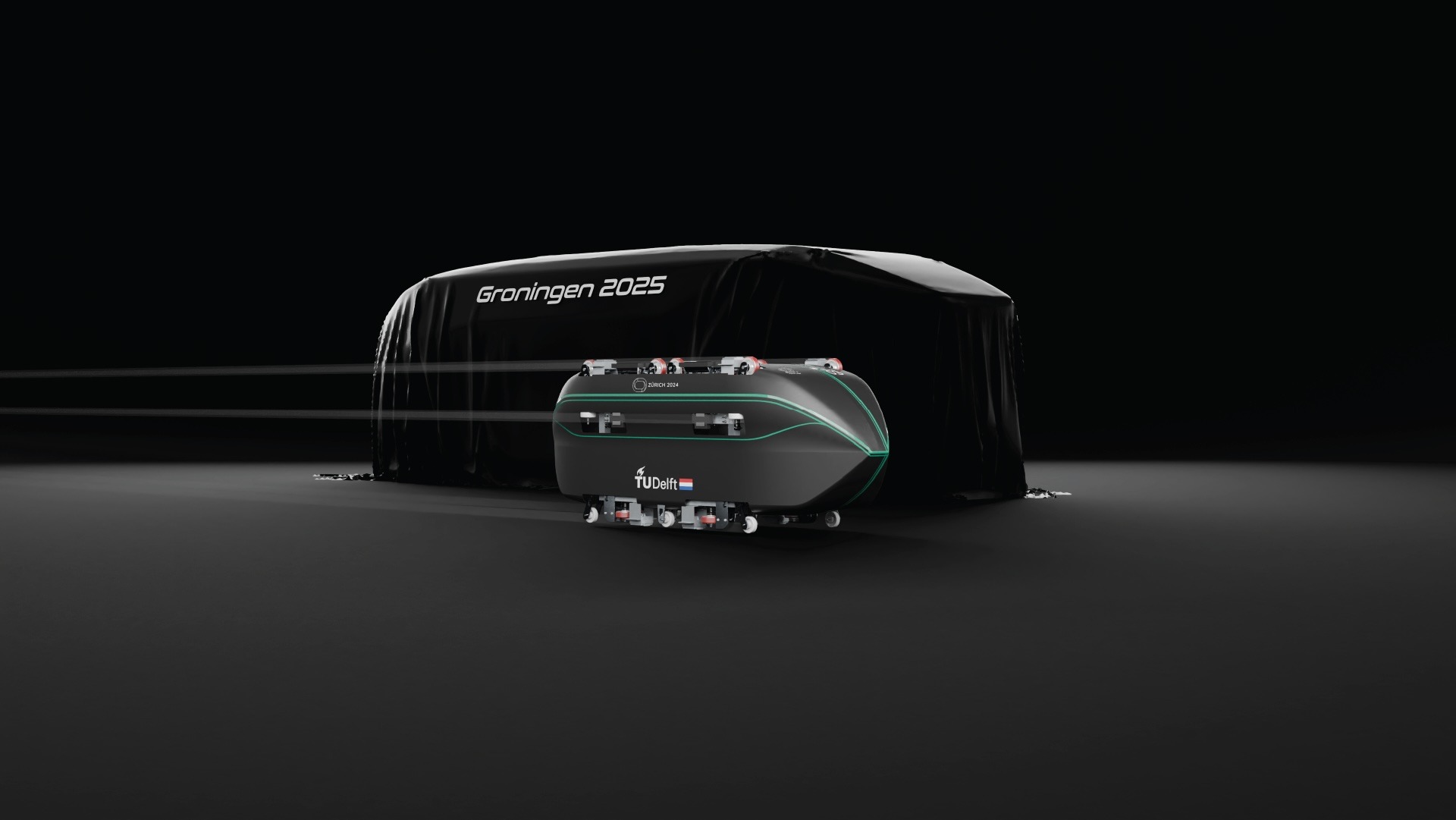The ninth Delft Hyperloop team will be the first to build a full-scale cabin or ‘pod’. Last Thursday, the 43 member student team unveiled their design at the Design Reveal in the Nieuwe Kerk in Delft. Theia (‘heavenly goddess’), as presented there, will be 2.5 times larger than all previous pods. This marks a break from the past and the introduction of an entirely new propulsion system. The team is aware of the scale of this goal, describing it as “a highly complex system for a student team aiming to develop and demonstrate it within a year”.

A key factor in this decision is the opening of the European Hyperloop Centre (EHC) last September. The test facility in Veendam features a 420 metre long tunnel with a split halfway through. This year, the EHC will host the European Hyperloop Week (16-21 September 2025), where more than 20 student teams will showcase their hyperloop innovations.
For this competition, the Delft Hyperloop Team is aiming for the Overall Award with their full-scale entry, which combines the Demonstration Award and the Research Award, says PR Manager Zoë Both. “As far as we know, we are the only team with a full-scale pod. That gives us an advantage.”
The hyperloop is a hypothetical mode of transport in which cabins (pods) travel through vacuum tubes, offering a potential alternative to short-haul flights. By reducing air and rolling resistance, hyperloop travel is far more energy efficient. Additionally, the fully electromagnetic system operates without fossil fuels.
- Visit the Delft Hyperloop website for more information


Comments are closed.